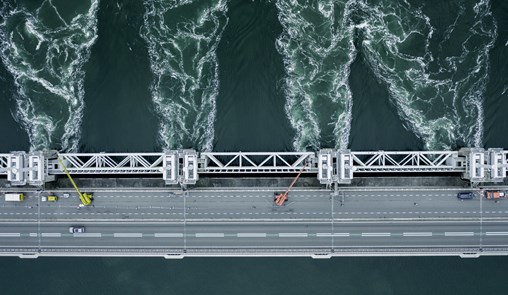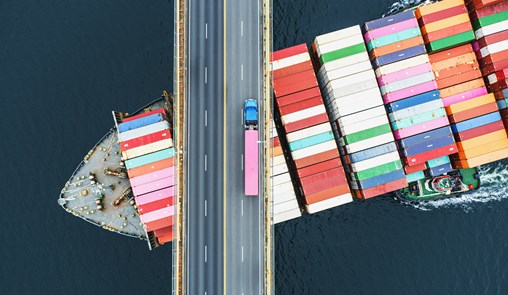Over the past fortnight, sanctions have dominated news cycles around the world. In an effort to deter Russia’s ongoing military incursions into Ukrainian territory, the world’s major economies have adopted a range of far-reaching and hard-hitting economic sanctions which target individuals and financial entities in Russia, Belarus and two separatist pro-Russian territories in Ukraine.
In this newsletter, special counsel and head of regulatory Alistair Bridges, and paralegal Keshav Karupiah provide an overview of the enhanced sanctions introduced by the US and how they have largely been followed by Australia.
Australian financial institutions and technology companies, and any one involved at the ‘high-tech’ level of our critical infrastructure, energy and resources, and manufacturing industries, should take note.
US leads on financial restrictions on Russia
Leading the coordinated sanctioning effort is the US, which has imposed almost daily tranches of increasingly severe and comprehensive sanctions. In addition to targeting strategically important individuals connected to Russia’s government apparatus, the US Office of Foreign Assets Control (OFAC) has sanctioned Russia’s 10 largest financial institutions, which hold almost 80% of Russian banking sector assets.
One notable entity which has become the subject of US sanctions is the company directing the construction of the Nord Stream 2 pipeline. The US has previously cited this project as posing a considerable security risk to Europe, with sanctions initially installed by then President Trump in 2019. These were waived by President Biden in 2021, but now they are back.
The targeted US financial sanctions include full blocking measures, correspondent and payable-through account restrictions, and restrictions on the extension of credit. It is worth noting that many of these sanctions are subject to OFAC’s General Licences, which permit US persons and entities to transact with these Russian entities in narrowly defined circumstances.
The US sanctions regime also prohibits dealings in Russia’s sovereign debt and additionally restricts dealings in debt and equity interests in both state-owned Russian entities as well as actors in Russia’s financial sector.
Finally, the US Department of Commerce’s Bureau of Industry and Security (BIS) has stepped-up its export controls targeting ‘dual use’ items, so named because they have both commercial and military applications, by further impeding Russia’s access to defence, aerospace, and maritime technologies.
Australia is following the US lead
At present, it appears that Australia is largely in step with the US, having implemented similar sanctions that focus on persons, financial actors, and technological capabilities.
Australia’s autonomous sanctions regime is governed by the Autonomous Sanctions Act 2011 and the Autonomous Sanctions Regulations 2011. Under the latter, the Minister for Foreign Affairs is empowered to make instruments designating individuals and entities for sanction purposes. Over the past five days, Australia has designated:
- five senior Russian Government members, including President Vladimir Putin and Foreign Minister Sergei Lavrov;
- eight members of Russia’s Security Council;
- eight persons in leadership positions in banks, social media, oil, gas and transport companies;
- 25 ‘army commanders, deputy defence ministers and Russian mercenaries’;
- 339 members of the Russian Parliament who voted in favour of recognising the Ukrainian regions of Donetsk and Luhansk as independent republics;
- various companies that support the Russian military; and
- Promsvyazbank, Industrial Savings Bank, Genbank and the Black Sea Bank for Development and Reconstruction.
This prohibits dealing with – in the sense of making assets available to – these designated individuals and entities, as well dealing with any assets owned or controlled by them. Further, Australia has prohibited dealings with financial instruments issued by, or providing loans or credit to, these designated entities and persons. It should be noted that there is considerable overlap between the classes of persons and entities designated by the US and Australia. The Minister has broad powers to designate additional entities and people including those that are ‘performing a function that is economic or strategic significance to Russia’.
Veto is now the default position on DSG to Russia
Australia has also imposed direct restrictions on Russia trade. As you would expect, the exportation of arms-related goods to Russia has been prohibited, as has the exportation of items suited for use in some limited methods of oil exploration. The importation of all goods originating in Crimea and Sevastopol has been banned.
The enforcement of the Defence and Strategic Goods List (DSGL), which lists military and commercial goods and technologies, has been stepped up. This will directly affect exports to Russia, with Australia’s Department of Foreign Affairs and Trade announcing that ‘while each case will be considered individually’, all goods on the DSGL ‘are likely to be considered arms or related matériel’. Australia’s reaction to the hostilities in Ukraine can be expected to lead to a tightening of the scrutiny of exports of all technology and productive assets by Australian companies proposed for any overseas destination.
A small price to pay
The fines for breaching Australia’s sanctions and export controls are very serious. However, the people of Ukraine are not assisted by a penalty imposed by an Australian court. The fines that may be imposed pale into insignificance when the practical consequence of breach is considered.
More than ever before, Australian companies, especially financial institutions and technology and software developers, need to know who they are dealing with in their international business and be alive to the potential for sanctioned entities to intercede in foreign transactions. Manufacturers of sensitive infrastructure, especially in the energy and resources space, should exercise caution lest their technology steps ‘over the line’ and is considered to have national security implications. The state of heighted tension that now besets international affairs makes your company’s commercial due diligence so very important.
Moulis Legal condemns violence and aggression in any form. We recall United Nations General Assembly Resolution 3314, which calls upon all States to refrain from all acts of aggression and other uses of force contrary to the Charter of the United Nations and the Friendly Relations Declaration.
This memo presents an overview and commentary of the subject matter. It is not provided in the context of a solicitor-client relationship and no duty of care is assumed or accepted. It does not constitute legal advice.
© Moulis Legal 2022






